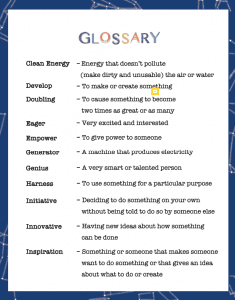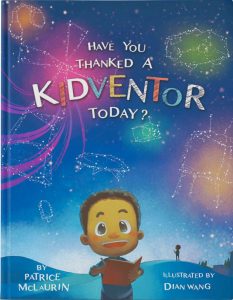
BENEFITS OF ADDING NONFICTION TO A CHILD’S LIBARY
https://patricemclaurin.com/wp-content/uploads/2020/11/nonfictionupdate-e1605382586881.png 706 269 pmclaurin pmclaurin https://secure.gravatar.com/avatar/14d9f9a6ef8e6cf4818ea0cf92291dd6bd51d25405d18dd5ba8c9a5f629ea1bb?s=96&d=mm&r=gI’ll acknowledge that as of late, my go to reading preference has been fiction. A compelling novel, capable of captivating my imagination and crafting the kind of experience that will whisk me away to magical places and foreign lands has been a WHOLE VIBE; particularly, during quarantine! But here’s another fun fact about me, I’m also a sucker for non-fiction! I consider myself, a cerebral reader if you will. In fact, for well over a decade of my life, non-fiction was all that I read. That’s why, in celebration of National Nonfiction Day, I’d like to highlight some of the benefits to adding non-fiction selections to your scholar’s personal and/or classroom library.
Studies indicate that non-fiction reading actually helps to promote a child’s academic success. In fact, according to an article published by Publishers Weekly, the percentage of published juvenile nonfiction is up 1% and the percentage of published Young Adult nonfiction is up 2%. This is awesome when you consider these key benefits that reading nonfiction, particularly informational texts, can provide to young readers:
Helps to Build a Student’s Vocabulary – Nonfiction children’s books can help to integrate complicated words into a child’s vocabulary by connecting those words with real world activities. Furthermore, the incorporation of diagrams, tables or other graphs into  informational texts may aid in the development of visual literacy. Lastly, many informational texts contain glossaries which obviously aid in vocabulary development.
informational texts may aid in the development of visual literacy. Lastly, many informational texts contain glossaries which obviously aid in vocabulary development.
Helps to Prepare Students For Advanced Grades – As children advance in their schooling, they transition from learning to read to reading to learn. They’ll be required to read more informational texts, to include reading and writing expository passages on tests. As such, the earlier scholars are introduced to this style and tone of writing, the easier their scholastic progression will be.
Can Provide Answers to a Child’s Why – Children are inquisitive by nature. They’re learning and growing and have a natural curiosity about the world around them. “Where does rain come from?” “Why do turtles crawl so slowly?” “What makes a leaf green?” Many children are awed by their own world, not just the fantastical worlds that come from reading a great piece of fiction. Providing quality, nonfiction books that address their interests, can prove to be quite stimulating for a young reader!

Have You Thanked a Kidventor Today – Informational picture book that highlights inventions created by children
Can Serve as an Important Resource for Children of Low Socio-Economic Status – According to an article published by the Global Reading Network, informational texts provide important background knowledge that helps students to actively participate in subjects across the curriculum. Unfortunately, studies have also shown that children of lower socio-economic status are disproportionately under-exposed to informational texts, which could partly explain stubborn achievement gaps.
Can Help with Second Language Learners – Learning in English as a second language can be challenging for new learners. Nonfiction books can provide realistic pictures which will allow students to connect the familiar images from their native language to words from the new language.
Can Appeal to Reluctant Readers – Believe it or not, some students just prefer nonfiction! As such, if there is a lack of diversity in their selection of books, these students might be averse to picking up a book at all. This begs the question, are your reluctant readers truly uninterested in books or do they just find your home or classroom library’s lack of diversity unappealing? Who knows, incorporating nonfiction into your library may improve attitudes towards reading!
Nonfiction Can Provide Life-Improving Information – Many children are faced with difficult circumstances daily (hunger, poverty, sibling care, etc…). Quite often, informational texts can offer children strategies on how to improve or even remedy their situation.
In short, encouraging scholars to read non-fiction early is important. It helps to prepare students for the majority of reading that they’ll participate in as adults. So whether you’re beginning your child’s library or looking to add to it, incorporating non-fiction books is a win win. You’ll not only be aiding in your child’s literary growth and development, you’ll also be contributing to their academic success!
REFERENCES:
https://www.globalreadingnetwork.net/learning/nonfiction-early-grades-key-reading-success

